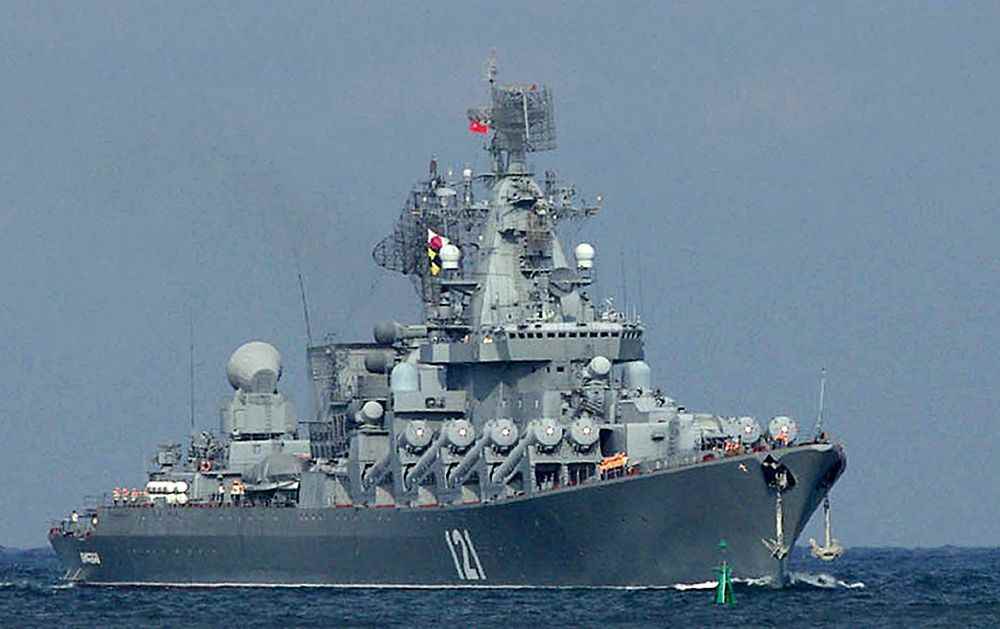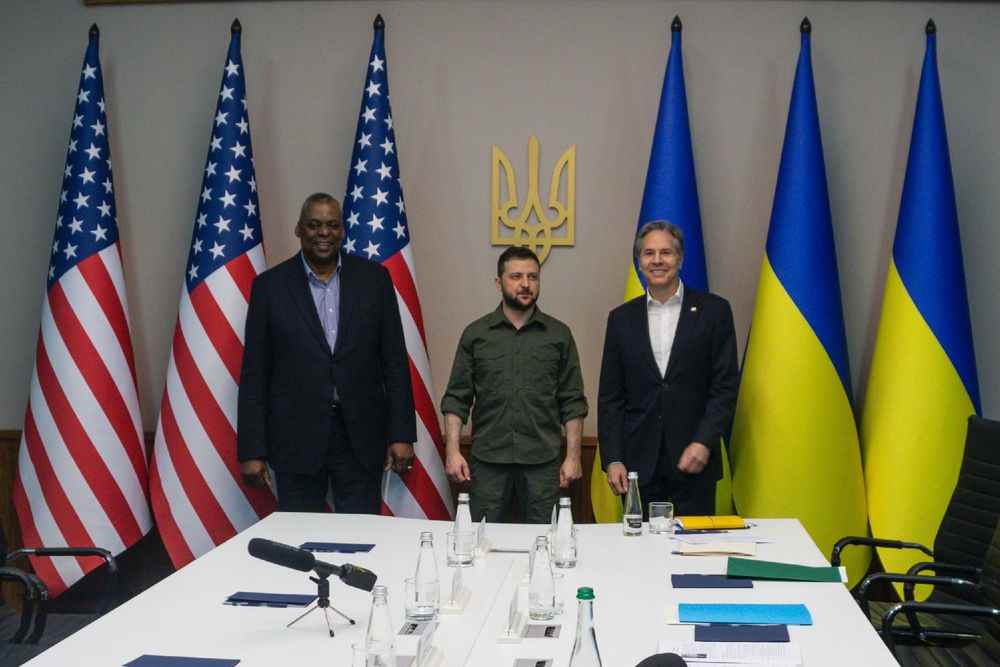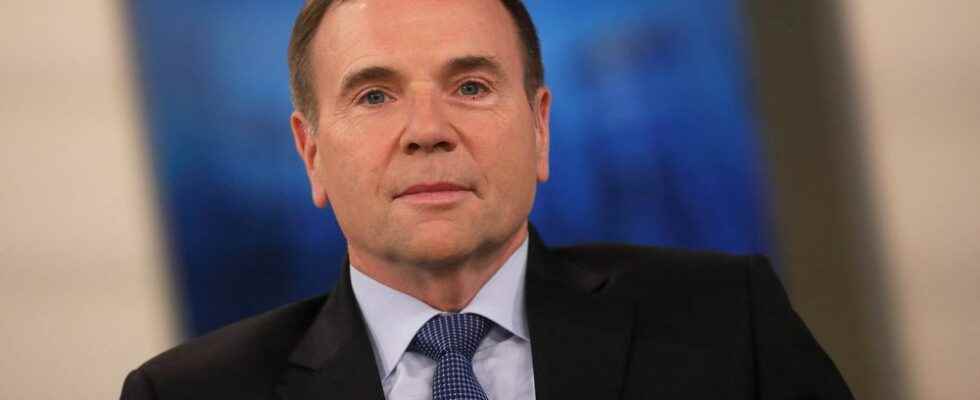A veteran of the Iraq and Afghanistan wars, General Ben Hodges commanded the US Army in Europe from 2012 to 2017, when Crimea was annexed and the war in eastern Ukraine. In this prestigious post, he essentially devoted himself to the Russian threat. Today he lives in Germany, where he speaks the language, he works for the Center for European Policy Analysis and he is a regular guest on CNN and Fox News.
L’Express: Beyond the military victory, what are, more broadly, the strategic objectives of Westerners in Ukraine?
General Ben Hodges: This war has an ideological dimension. It is a clash between democracy and autocracy. Although in recent years many people wanted to focus on China first, the democratic world has come to realize that Russia poses a real threat to peace. However, for the United States, security in Europe is crucial, not only from an economic point of view, but also from a strategic point of view, because that is where our most reliable and oldest allies are.
Also, we must never forget that China, Iran and North Korea are closely following what is happening in Ukraine. If the Allies do not stop Russia now on the ground, the risk of further major conflicts arising will be greatly increased. Autocracies scrutinize our reactions. If we give the impression that we allow ourselves to be intimidated by Russia under the pretext that it evokes nuclear weapons, then it will be enough for these countries to brandish the same threat to make us retreat. And that will be the end of the democratic world as we know it today…
General Ben Hodges, ex-commander of the US Army in Europe on the ARD channel in Germany, in October 1919 in Berlin.
dpa Picture Alliance via AFP
Concretely, what do you recommend?
As US Secretary of Defense Lloyd Austin has said, we have before us a unique opportunity to weaken Russia. For this, the priority is to preserve and strengthen the unity of the Atlantic Alliance. Sweden and Finland are preparing to join NATO, which is very positive. Next, sanctions must be maintained against Russia so that its military industry can no longer import the electronic components needed to renew its stock of weapons. Their army is already no longer able to replace cruise missiles and certain sophisticated weapons which also require semiconductors.
In addition, we must work to reduce our vulnerability to disinformation emanating from Moscow and economic blackmail, which are two of the main levers used by the Kremlin. Finally, the West must do everything to free itself from Russian energy dependence. All of this is doable, and as we do it, Russia is weakening to the point where one day it will no longer have the ability to threaten and harm its neighboring countries.

The Russian cruiser Moskva (here in August 2013 in Sevastopol) sunk by a Ukrainian missile last month in the Black Sea.
afp.com/Vasiliy BATANOV
You recently mentioned the idea of a strategy for the Black Sea. What is it about ?
There is a geographical context to the war in Ukraine and it is important to think about it. For this, I advocate a “Black Sea strategy”. First, we must repair our relations with Turkey, which is a member of NATO, and continue to consolidate our ties with Romania. On the eastern shore of the Black Sea, we also need to help Georgia, which is a young democracy. This South Caucasian country has enormous economic development potential, due to its geographical position in the “Eurasian Corridor”.
Georgia sees itself as Europe’s gateway to Asia and I think it is right. We need to focus on this region, but not erratically. We have to be involved in it consistently and have long-term goals, otherwise it won’t work. The Russians have considerable influence in Tbilisi, through the Georgian Dream party which has dominated political life for ten years.
Are the White House, i.e. Joe Biden, and the Pentagon, i.e. Lloyd Austin, sufficiently cautious in their statements vis-à-vis Vladimir Putin?
For twenty years we have been tiptoeing so as not to antagonize Russia and this extreme caution has led us to where we are today… I’m rather tired of hearing people say that must be careful not to provoke Vladimir Putin. The 30 NATO countries combine together a political, diplomatic, economic, military and demographic force which supplants Putin’s Russia. There is no reason to put oneself in the psychological position of being afraid of Putin. It amounts to deterring ourselves by pretending to believe that Russia is more powerful than it really is.
“There is a unique opportunity to stop the Russian threat for good”

A photo released by the US Department of Defense on April 24, 2022 shows US Secretary of State Antony Blinken (r), US Secretary of Defense Lloyd Austin (l), Ukrainian President Volodymyr Zelensky (c) during a dating in Kyiv
afp.com/-
This psychological trap led us, two months ago, to give up supplying the Ukrainian Air Force with old MiGs that were twenty-five years old. Ridiculous… Some even claimed that Stingers should not be delivered [NDLR : lance-missiles sol-air] to Ukraine because it would upset the Russians. Fortunately they were not listened to. Russians are rational. And Putin is not a Nero who wants to destroy everything around him. As for those around him, he has no more desire to reduce himself to dust by triggering the nuclear button.
How do you judge conflict management by the Biden administration?
I support our government 100%. My only regret is that we started helping Ukraine a bit late. We would be in a better situation if we had anticipated things a little better. Anyway, I think that by the end of the summer, in September, the Russian forces, which are demoralized, will have reached the maximum limit of their capacity. Not only will the Ukrainians have stopped the advance of the Russians, but they will be in a phase of general counter-offensive which will allow Ukraine to regain its borders of February 23, on the eve of the conflict. In short, Ukraine will have won the war.
In your opinion, has the state of mind of Westerners changed in recent weeks?
Yes. And I’m thrilled that the Biden administration has started talking victory. This is what we lacked in Afghanistan. There, we never talked about “winning” or “succeeding”. And look how it ended… Having clear war aims, and striving to achieve them, is what allows victory.
The objective of the Ukrainians, supported by the West, is to push back the Russians so that kyiv regains full sovereignty over its territory. The aim is also to enable the 6 million displaced Ukrainians to return to their homes. Now there is a unique opportunity to stop the Russian threat for good. And to make Moscow understand that it must behave as a responsible actor within the international community. It’s the kind of opportunity that only comes around once in a generation. Now is the time to grab it.

–>
Interview by Axel Gyldén
